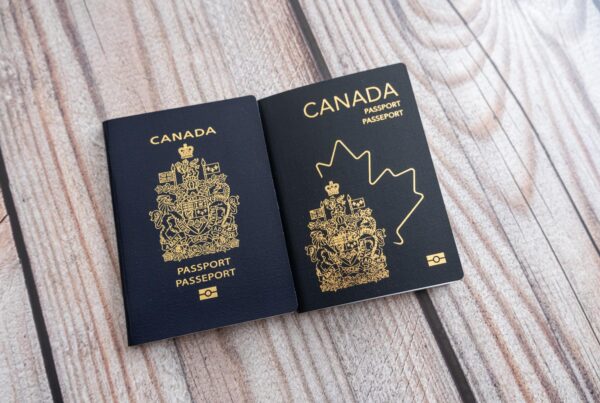Canada is known for its friendly people, stunning landscapes, and high standard of living. It’s no surprise that many people from around the world want to move to Canada. If you’re considering Canadian immigration, it’s important to understand the laws, policies, and procedures involved. In this guide, we’ll cover everything you need to know about immigrating to Canada, from understanding the immigration laws and policies to finding settlement services and support.
Understanding Canadian Immigration Laws and Policies
Before you start the immigration process, it’s essential to understand the laws and policies that govern immigration to Canada. The Canadian government has set up several immigration programs to allow people from all over the world to come to Canada and contribute to the country’s growth. These programs include economic, family, and refugee programs. It’s crucial to determine which program is right for you based on your situation and goals.
Types of Canadian Immigration Programs
There are various Canadian immigration programs available for prospective immigrants. Some programs are based on economic factors, while others are designed for family members of Canadian citizens or permanent residents. The most popular Canadian immigration programs are the Federal Skilled Worker Program, the Canadian Experience Class, and the Federal Skilled Trades Program.
Applying for Canadian Permanent Residency
Applying for Canadian Permanent Residency can seem like a daunting task, but with the right guidance and resources, it can be a straightforward process. Here are some steps to follow when applying for permanent residency in Canada:
- Determine Your Eligibility: Before applying, it’s important to ensure that you meet the eligibility criteria for permanent residency in Canada. This includes factors such as work experience, language proficiency, and education.
- Choose the Right Immigration Program: There are several immigration programs available for those seeking permanent residency in Canada, such as the Federal Skilled Worker Program, the Canadian Experience Class, and the Provincial Nominee Program. Each program has its own set of eligibility requirements, so it’s important to choose the one that best fits your individual circumstances.
- Complete the Application: Once you have determined your eligibility and chosen the right immigration program, it’s time to complete the application. This will involve submitting all required documents, such as language test results and educational credentials. It’s important to ensure that all documents are submitted correctly and on time to avoid any delays or complications.
- Attend an Interview (if required): Depending on the immigration program, an interview may be required as part of the application process. This interview will typically be conducted by a Canadian immigration officer and may involve questions about your work experience, language proficiency, and education.
- Wait for the Application to be Processed: After submitting the application and attending any required interviews, it’s time to wait for the application to be processed. The processing time can vary depending on the immigration program and the number of applications being processed at the time.
Temporary Visas: Work and Study Permits
Temporary visas, such as work permits and study permits, allow individuals to come to Canada for a specific period of time. These permits are often a stepping stone to permanent residency, as they can help individuals gain Canadian work experience or pursue higher education. Here are some important things to know about temporary visas:
- Eligibility criteria: To be eligible for a work or study permit, individuals must meet specific criteria, such as having a valid job offer or being accepted into a Canadian educational institution.
- Application process: The application process for temporary visas can be complex, and it’s important to ensure that all required documents are submitted correctly and on time. Immigration lawyers can help individuals navigate the application process and increase their chances of success.
- Processing times: Processing times for temporary visas can vary depending on the type of permit and the individual’s country of origin. It’s important to apply well in advance to ensure that the permit is approved in time.
- Renewals and extensions: Work and study permits are typically valid for a specific period of time, after which they must be renewed or extended if the individual wishes to continue living and working or studying in Canada. Immigration lawyers can help with the renewal or extension process to ensure that all required documents are submitted correctly and on time.
Citizenship Eligibility and Naturalization Process
Becoming a Canadian citizen is a significant step in the immigration process, as it provides many benefits such as the right to vote, access to government services and programs, and the ability to travel with a Canadian passport.
To be eligible for citizenship, applicants must meet certain criteria, such as having permanent residency status, being physically present in Canada for a certain amount of time, and passing a citizenship test. The naturalization process involves submitting an application, attending a citizenship ceremony, and taking the oath of citizenship.
Navigating the citizenship eligibility and naturalization process can be overwhelming, especially for those who are not familiar with Canadian immigration law. This is where an immigration lawyer can be incredibly helpful.
Immigration lawyers have expertise in Canadian citizenship law and can help applicants determine their eligibility for citizenship, prepare their applications, and ensure that all required documents are submitted correctly and on time.
We can also assist with any issues that may arise during the process, such as delays or rejections, and help applicants appeal decisions if necessary.
Resources for Newcomers: Settlement Services and Support
As a newcomer to Canada, you may need help with settling in and adjusting to Canadian life. There are many settlement services and support available to help newcomers with everything from finding housing and employment to learning about Canadian culture and customs. Some of these services are provided by the government, while others are offered by community organizations and non-profits.

Cost of Immigration to Canada: Fees and Expenses
Immigrating to Canada can be a costly process, and it’s important to budget accordingly to avoid any financial surprises. Here are some of the fees and expenses that applicants should be aware of:
- Application Fees: There are various application fees associated with Canadian immigration, such as the application fee for permanent residency, study permit, work permit, and citizenship. These fees can range from a few hundred to a few thousand dollars.
- Medical Examination Fees: Medical exams are a mandatory part of the immigration process, and applicants must pay for the exam and any additional tests required.
- Language Testing Fees: Applicants must also undergo language testing to prove their proficiency in either English or French, which can come with additional fees.
- Travel Costs: Applicants must also factor in travel costs to Canada, such as flights, accommodation, and transportation.
- Settlement Funds: Some immigration programs require applicants to have a certain amount of money in savings to prove that they can support themselves and their dependents upon arrival in Canada.
Language Requirements for Immigration to Canada
Language proficiency is an essential requirement for Canadian immigration. English and French are the official languages of Canada, and applicants are required to demonstrate proficiency in at least one of these languages. The language requirements vary depending on the immigration program and the applicant’s situation.
Settling in Canada: Finding Housing and Employment
Finding housing and employment is a significant challenge for newcomers to Canada. Housing can be expensive in some cities, while employment can be challenging, especially for those who don’t have Canadian work experience. It’s crucial to research and plan ahead to find suitable housing and employment options.
Navigating Canadian Culture: Customs and Etiquette
Navigating Canadian culture can be an enriching experience, as Canada is a diverse and multicultural country with a rich history and unique customs. However, as with any new culture, it’s essential to learn about Canadian customs and etiquette to avoid any misunderstandings or unintentional faux pas.
One of the most important aspects of Canadian culture is politeness and respect for others. Canadians are known for their friendliness and welcoming attitude towards visitors and newcomers. It’s common to greet people with a smile and a handshake, and to say “please” and “thank you” often.
Another key aspect of Canadian culture is punctuality. Canadians generally value being on time, whether it’s for work, social events, or appointments. It’s considered polite to arrive a few minutes early to show respect for the other person’s time.
In terms of dress, Canadians tend to dress casually, especially outside of business settings. Jeans and sneakers are commonly worn, even in more formal settings, but it’s still important to dress appropriately for the occasion. For example, dressing up for a wedding or a fancy restaurant is still expected.
When it comes to dining etiquette, Canadians tend to be relatively informal, but there are still some customs to be aware of. It’s customary to wait until everyone has been served before starting to eat, and to use utensils rather than fingers when eating. Tipping is also a common practice in Canada, with 15-20% being the standard amount for good service.
Lastly, it’s important to be aware of Canada’s multicultural makeup and to show respect for different cultures and beliefs. Canada is home to many different religions, languages, and cultural traditions, and it’s important to be open-minded and tolerant towards others.
Incorporating an Immigration Lawyer into Your Immigration Process
Hiring an immigration lawyer can be incredibly beneficial for anyone going through the Canadian immigration process. Immigration lawyers have expertise in immigration law and can help applicants navigate the complex application process. We can also help ensure that all required documents are submitted correctly and on time, which can significantly increase the chances of success. It’s important to choose a reputable immigration lawyer who has experience in Canadian immigration law and a track record of success.
Immigrate to Canada with Confidence: Trust Joshua Slayen Canadian Immigration for Expert Guidance and Support
If you’re considering immigrating to Canada, working with a trusted and experienced immigration lawyer can help ensure a successful and stress-free process. At Joshua Slayen Canadian Immigration, we understand the complexities of Canadian immigration laws and policies and provide expert guidance and support to clients throughout the entire immigration process. From understanding the different immigration programs and language requirements to navigating Canadian customs and etiquette, we provide tailored solutions that meet our client’s unique needs. Our team is dedicated to helping clients achieve their immigration goals and settle into their new life in Canada with confidence. Trust Joshua Slayen Canadian Immigration for your Canadian immigration needs and let us help you make your Canadian dream a reality.










